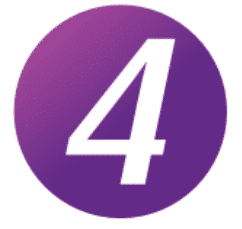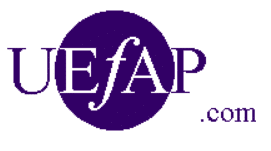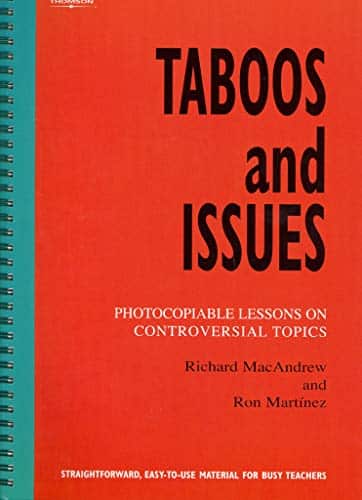
Advanced ESL Lessons: 21 Practical Resources
Sometimes, walking into an advanced ESL lesson is a little bit daunting.
Advanced learners already have robust vocabularies and are often more comfortable with grammar than many native English speakers.
So teachers are often stuck with the question: “What can I even teach them?”
Luckily, we’re teaching in the days of the World Wide Web.
It takes some digging, but the internet is an absolute treasure trove of fantastic resources for advanced ESL lessons.
Some of these resources are specially tailored for ESL students, while others work equally well—if not even better—because they provide your advanced learners with rich, authentic English materials meant for native speakers.
We’ve done the digging for you, so the next time you’re running low on ideas for your advanced classes, look no further than these 21 top-notch resources.
Contents
Download: This blog post is available as a convenient and portable PDF that you can take anywhere. Click here to get a copy. (Download)
Academic Skills
One thing that advanced lessons often focus on is academic skills. A lot of students are going to attend university courses in English, so they’re not only trying to up their language skills, but their general academic skills as well.
These resources are great for any teacher working on improving their students’ ability to compete in the academic world.
1. Oxford Learner’s Dictionaries (The Academic Word List)
 There’s a certain kind of vocabulary that students need if they’re going to complete their education in English. In fact, whether they’re going on to university in English or not, this vocabulary is absolutely necessary for passing a standardized English test like the IELTS, TOEFL or TOEIC.
There’s a certain kind of vocabulary that students need if they’re going to complete their education in English. In fact, whether they’re going on to university in English or not, this vocabulary is absolutely necessary for passing a standardized English test like the IELTS, TOEFL or TOEIC.
Luckily, the researchers at Oxford University have put together a list of the words students are likely to need in an English-speaking university context. They’re all categorized into handy sublists so you can help your students stay organized. Use these lists to create worksheets or other activities, and make sure your advanced ESL students are getting the vocabulary they need.
2. UEFAP (Andy Gillett’s Guide for Students in Higher Education)
Aside from university-level vocabulary, students also need certain academic skills they’re likely not to have learned in their home countries.
Andy Gillette’s website focuses on developing advanced listening, reading, writing and research skills. The site looks a bit dated, but what it lacks in aesthetics it makes up for in the sheer quality of its materials.
Informal English
Perhaps the students in your advanced class are less interested in developing their academic skills, and more interested in getting by socially in an English-speaking country.
And adapting socially would be difficult if they don’t know (much of) English’s fun but challenging range of slang, idioms and phrasal verbs.
If that’s what your students are after, the following resources for informal English are your best bet.
3. English Club Slang

Make sure to have a look at their page on slang. It’s organized alphabetically, as well as by country and by topic (i.e., “offensive,” “vulgar” and “taboo”). As a bonus, they provide quizzes and teacher’s notes too.
4. FluentU

Everyone loves a video break, especially when it’s for something fun. FluentU is a language learning program based on authentic video learning. Play videos like movie trailers, music videos and news segments for a lesson in listening that revolves around real native English.
FluentU organizes its videos by difficulty, including two advanced levels. You can use the program in the classroom or assign homework for students to watch videos on their own. Students will be engaged since they can pick content they actually care about.
And you know they won’t get lost in the weeds of advanced vocab since every word in the subtitles can be clicked for an instant definition. Students (and teachers) can also create flashcard decks that test students using personalized quizzes.
5. English-Hilfen (Idioms and Informal English)

With hundreds of idioms and proverbs presented in context, you won’t be running out any time soon. Of course, aside from the grammar, the website is also packed with vocabulary topics such as common errors, confusing words and customs and traditions.
6. UsingEnglish.com (Idioms & Idiomatic Expressions)
 UsingEnglish.com is another one of those sites I often wind up on in my rabbit hole searches for activities, and their exhaustive list of idioms is also really useful.
UsingEnglish.com is another one of those sites I often wind up on in my rabbit hole searches for activities, and their exhaustive list of idioms is also really useful.
There’s extra access for paid members, but a large amount are available for free. Mostly they’re organized by topic, but they also have lists of idioms by country if you’re focusing on a specific region.
Note that many of the idioms are user-contributed, however, so make sure to double-check them before you present them in class.
7. Learn English Today (English Phrasal Verbs)

This alphabetical list of phrasal verbs could keep you busy for months. With definitions, examples in context and quizzes available, it could be used to teach a whole course.
Plus, you can choose to teach the phrasal verbs in alphabetical order, according to how common they are and according to the specific verb, theme and preposition.
Current Events
Another rich area to focus your lessons on is current events. This doesn’t mean you have to necessarily teach about what’s going on in English-speaking countries. You could also see how events in the students’ home countries are being covered in English language media.
This exercise is incredibly effective, because not only are your advanced students exposed to authentic English in the articles or broadcasts, but they can also identify how coverage of an event is different from their home country’s media coverage.
If you and your students are located in the USA, a handy resource for finding news magazines at lower prices is Magazine Line. Just go to “News & Politics” and you’ll see many options for subscriptions to high-profile news magazines with discounts for as much as 90% off.
With that said, here are some of the top sources for news by country:
8. The New York Times

They’re best known for their long-form feature articles that include topics ranging from Amazon’s workplace culture to the secret to falling in love with anyone.
You can view a certain number of articles for free every month if you sign up using your email. However, a paid subscription will get you full access and be most convenient for a classroom setting.
9. BBC
 For the British perspective, you can’t go wrong with the BBC. Britain’s leading news organization provides up-to-date coverage of events both in Britain and abroad.
For the British perspective, you can’t go wrong with the BBC. Britain’s leading news organization provides up-to-date coverage of events both in Britain and abroad.
Also, the BBC has a course for advanced English learners via their “Learning English” arm. They have lessons on English that learners can use in their day-to-day lives, English for academics, advanced English grammar and podcasts, among others.
10. The Irish Times

Providing international news as well as a local perspective, this source also has a sports section that includes sports your students may have never heard of, like hurling and Gaelic football.
If you’re discussing history, you may want to use this publication as an opportunity to touch on Ireland and its complicated history with the United Kingdom.
11. The Globe and Mail
 To hear the Canadian take on North American and world events, get your students reading The Globe and Mail, one of Canada’s leading dailies.
To hear the Canadian take on North American and world events, get your students reading The Globe and Mail, one of Canada’s leading dailies.
As you discuss this particular publication, it may be worth talking about the differences between Canadian and U.S. English and culture. Canada may not make as much of a splash in the international scene as many other English-speaking countries, but the country’s rich culture and history isn’t one to be ignored.
12. The Australian
 For perspective from the Land Down Under, head to The Australian‘s website. They specialize in business and political news, but everything is covered. Asian students will be particularly interested in this one, due to Australia’s proximity to Asia.
For perspective from the Land Down Under, head to The Australian‘s website. They specialize in business and political news, but everything is covered. Asian students will be particularly interested in this one, due to Australia’s proximity to Asia.
Australian news is often ignored in European and American newspapers, so it’s good to check out what’s up in the southern hemisphere once in a while.
13. The NZ Herald

The NZ Herald is your go-to for Kiwi news, which isn’t often featured in any of the other newspapers on this list. Like Australia, New Zealand may be particularly interesting to students who can trace their origins to Asia owing to the country’s location relative to the continent.
Cultural Lessons
In addition to learning about how English-speaking countries view world events, your advanced classes might also be interested in gaining a deeper understanding of English-speaking cultures.
This next section of resources can be used to familiarize your students with the holidays, religious practices and taboos of the English-speaking world.
14. History.com (Holidays)

The featured holidays range from the typical, like Christmas and the Fourth of July, to the less well known, like Rosh Hashanah and Kwanzaa, which your students may have never heard of.
15. Learn Religions
 Learn Religions is exactly what it sounds like: a site that teaches you all about the religions of the world.
Learn Religions is exactly what it sounds like: a site that teaches you all about the religions of the world.
The nice thing about this site is that it organizes the religions according to their geographic location and tradition. The articles talk about religions from the perspective of the people who practice them (or, at least, are knowledgeable about them), so your students can gain insights into cultures and beliefs different from their own.
And if your students happen to follow any of the religions featured, they may gain a fresh perspective on their own beliefs from an English speaker’s point of view.
16. “Taboos and Issues” by Richard MacAndrew and Ron Martinez
This is the only hard copy resource I’ve included on this list, but I’m including it for good reason.
Advanced ESL classes are often mature enough to take on subjects commonly considered taboo: gay marriage, age gaps in relationships, transgenderism and the death penalty, for example.
This book is well loved by English teachers around the world for its ability to create stirring debates in the classroom.
17. Heads Up English (Culture Lessons)
Don’t be fooled by the big ads for membership on the culture page from Heads Up English. Their full lesson plans are actually free for teacher’s use and deal with topics like emigration and anxiety.
Click the topic you’re interested in and scroll all the way to the bottom for listening, speaking, vocabulary or full lesson downloads. This one’s a real time saver!
English for Specific Purposes
There’s a lot of talk in the ESL industry right now about English for Specific Purposes, and for good reason. Having the right vocabulary and expressions is crucial for your students once they start working.
Use these final four resources to help your advanced class excel at their jobs, whether they’ve immigrated into an English-speaking country or they’re just looking to improve their workplace English at home.
18. British Council (Business English)

If your students want to brush up on their business English, for example, they can simply browse through the website and read business magazines, listen to podcasts for professionals and learn how to write effective emails.
If they want to assess their current English level, they can also create an account on the site and take the British Council’s online English level test.
19. HospitalEnglish.com

HospitalEnglish.com provides flashcards and lesson plans for medical staff, but they’re useful for any advanced ESL class that would like to learn a bit about English medical terminology.
20. English4Hotels

If your students are interested in tourism, this is place to look for resources on language to use when checking guests in and out of hotels, settling bills and more.
They can also follow the lessons according to how the site laid out the topics. For each lesson, students can practice their vocabulary and reading skills and do some activities to assess what they’ve learned.
21. BusinessEnglishSite.com
![]() BusinessEnglishSite.com is good for all areas of business English and is a division of LearnEnglishFeelGood.com. As the site says, all of the exercises except the ones explicitly marked for beginners are for intermediate and advanced students.
BusinessEnglishSite.com is good for all areas of business English and is a division of LearnEnglishFeelGood.com. As the site says, all of the exercises except the ones explicitly marked for beginners are for intermediate and advanced students.
The specific industries featured are “Sales and Marketing,” “Accounting, Banking, Finance,” “I.T. & Computer-related Business English,” “Medical English for Doctors and Patients” and “Other Business English Exercises” that don’t fit neatly into the categories already featured.
Although these resources can be demanding, your advanced students are knowledgeable and capable of diving into interesting material.
With them, you’ll be able to walk into your lessons confident, prepared and ready to wow. Happy teaching!
Download: This blog post is available as a convenient and portable PDF that you can take anywhere. Click here to get a copy. (Download)





